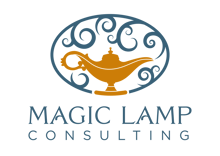Nonprofit leaders know every dollar counts and are constantly looking for ways to stretch their...
Cost-Effective Capacity Building: When It’s Smarter to Hire a Consultant Than Staff

For nonprofit leaders, staffing decisions can feel like a high-stakes balancing act. On one hand, you need the talent and expertise to move your mission forward. On the other hand, resources are often limited, and adding a permanent position can strain the budget—especially if you’re not certain the need will be ongoing.
This is where consultants come in. Hiring a consultant isn’t just a stopgap solution; in many cases, it’s the most strategic and cost-effective choice. The key is knowing when a consultant can deliver better value than hiring full-time staff.
1. The Case for Consultants in Nonprofits
A consultant brings specialized expertise without the long-term costs of salary, benefits, and overhead. They can focus on a specific project, fill skill gaps, and provide objective insights that internal teams may overlook.
Nonprofits often turn to consultants for:
- Grant writing for a competitive opportunity
- Strategic planning to chart a new course
- Fundraising campaigns that require fresh ideas
- Technology implementation like CRM upgrades
- Marketing and communications for a rebrand or campaign launch
Because their role is clearly defined, consultants can deliver high-impact results without becoming a permanent line item in your budget.
2. When a Consultant is the Smarter Choice
Here are common scenarios where a consultant can be more cost-effective and strategic than hiring staff:
a. Short-Term or Project-Based Needs
If your organization needs help for a defined period—like a 6-month capital campaign—hiring staff may lead to unnecessary costs once the project is complete. Consultants can start immediately, complete the project, and transition out without lingering costs.
b. Highly Specialized Expertise
Specialized skills—like capital campaign strategy, DEI training, or advanced data analysis—are often too niche to justify a full-time role. A consultant can bring that expertise in precisely when it’s needed.
c. Neutral, Objective Perspective
Sometimes you need a fresh set of eyes. Consultants can assess your programs, fundraising strategies, or organizational structure without being influenced by internal politics or history.
d. Budget Constraints
If your budget can’t support a full-time salary plus benefits, but you still need top-tier expertise, a consultant can deliver value in a more flexible financial arrangement.
e. Rapid Scaling or Change
When your organization is growing quickly, undergoing a merger, or launching a new program, consultants can bridge the gap until you’re ready to commit to permanent staff.
3. Cost Comparison: Consultant vs. Employee
At first glance, consultants can seem expensive—hourly rates or project fees are often higher than an employee’s hourly wage. But when you consider the full cost of an employee, the numbers often tell a different story.
Full-time employee costs include:
- Salary
- Benefits (health, retirement, paid leave)
- Payroll taxes
- Training and onboarding
- Equipment, software, and workspace
- Ongoing management and supervision
With a consultant, you pay only for the specific work and time they commit. There’s no benefits package, office space, or training costs. And if the need ends, so does the expense.
4. How to Get the Most Out of a Consultant
Hiring a consultant should be a strategic decision, not a last-minute fix. Here’s how to ensure you get maximum value:
a. Define Your Goals Clearly
Before you bring someone on board, know exactly what success looks like. Is it a completed strategic plan, a grant proposal, or a CRM system fully implemented?
b. Set a Realistic Budget
Be clear about your financial parameters, and ask the consultant to outline what’s achievable within that range. Transparency up front helps avoid surprises later.
c. Establish Timelines and Deliverables
A good consultant will work with you to set a timeline with milestones, so you can track progress and stay accountable.
d. Communicate Regularly
While consultants work independently, regular check-ins keep everyone aligned and allow for course corrections if needed.
e. Plan for Knowledge Transfer
One of the best ways to ensure long-term value is to have the consultant document their processes and train your team to carry forward the work after their engagement ends.
5. When an Employee May Be the Better Choice
While consultants are valuable, they’re not always the answer. Full-time staff may be the right investment when:
- The role is essential to your ongoing operations.
- The skills required will be needed consistently year-round.
- You want to build internal capacity and retain institutional knowledge.
- The work involves daily relationship management (e.g., volunteer coordination or program delivery).
In these cases, the continuity and internal expertise of a dedicated staff member outweigh the flexibility of a consultant.
6. Blending the Two Approaches
Many nonprofits find that a hybrid approach works best. You might have a lean core staff for day-to-day operations and bring in consultants for high-skill, project-specific work. This model can help you remain nimble while still investing in long-term capacity.
For example:
- A development director manages ongoing fundraising, while a consultant designs and runs a major gifts campaign.
- An in-house communications coordinator handles daily updates, while a consultant leads a rebranding effort.
This approach keeps your team lean but capable of taking on ambitious projects without overextending your resources.
Considering Hiring A Consultant?
If you’re considering whether hiring a consultant is the right move for your organization, Magic Lamp Consulting can help. We’ll work with you to assess your needs, identify opportunities, and bring in the expertise that aligns with your mission and resources.
Contact us today to start the conversation about how we can strengthen your capacity—smartly, strategically, and sustainably.




